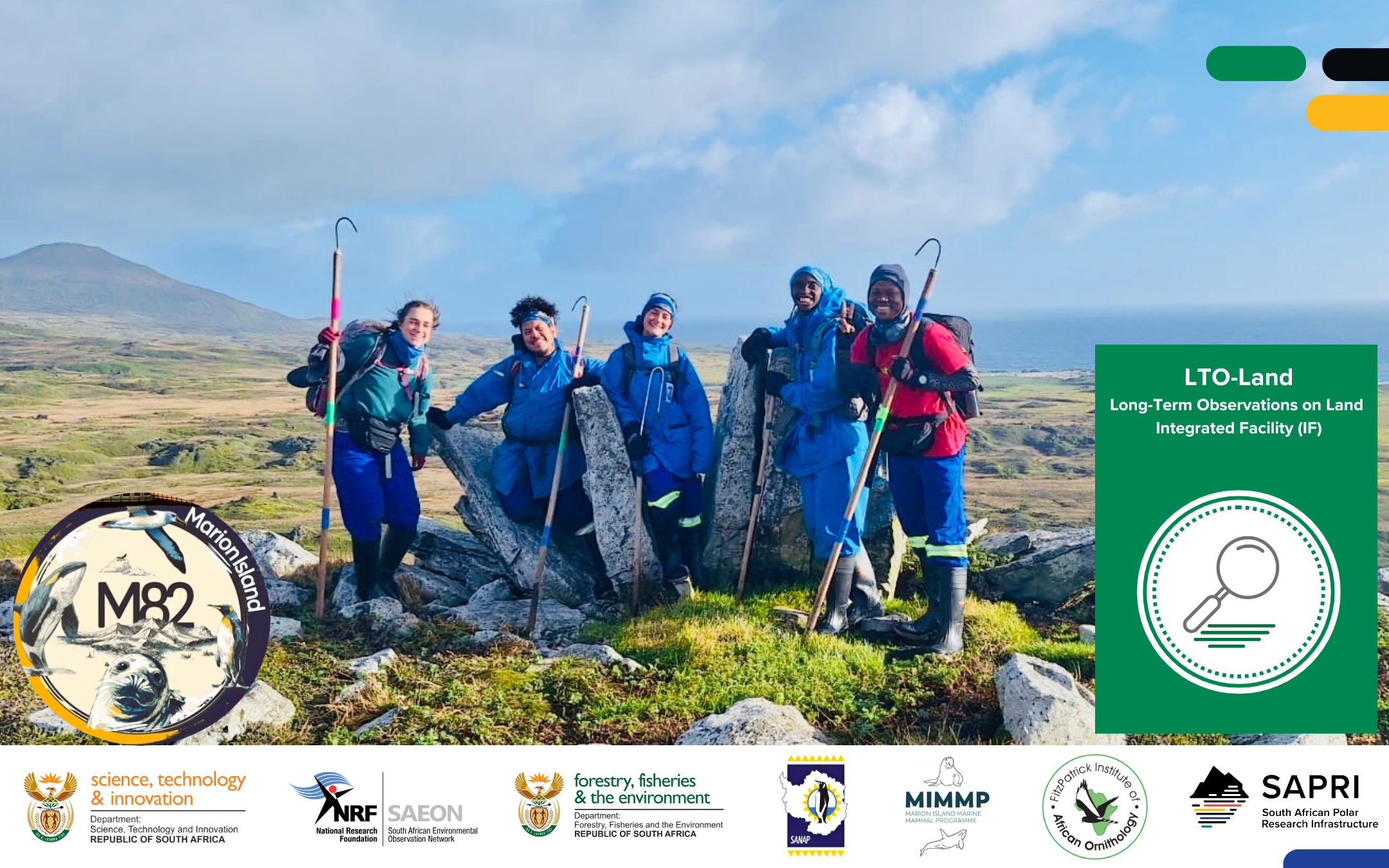2025 saw the appointment of the second cohort of the South African Polar Research Infrastructure (SAPRI) team of Marion Island overwinterers in March. This dedicated team of marine mammal and seabird field researchers forms part of the Marion Island Top Predator Long-Term Observation Programme, a key initiative under SAPRI. The programme ensures the continued monitoring of top predators on the island – work that was initially led by South African university research groups but is now sustained by SAPRI to guarantee long-term continuity beyond the constraints of typical three-year funding cycles.
An overview of SAPRI’s long-term monitoring of top predators on Marion Island
The newly appointed 2025/26 team takes over from the successful 2024/25 cohort, who spent 13 months on the island conducting vital research and conservation work. This annual rotation of teams – known as the Marion Island Relief or Takeover Expedition – takes place every April to May. Researchers and supplies are transported via the iconic research and supply vessel, the S.A. Agulhas II, managed and administered by the Department of Forestry, Fisheries and the Environment (DFFE), which also oversees the Marion Island research station.
This year’s expedition marked the 82nd relief voyage (M82) since the launch of South Africa’s National Antarctic Programme (SANAP) in the sub-Antarctic and Antarctic region.
Meet the 2025/26 SAPRI Marion Island (M82) Overwinterers
Chandler Patel
Killer whale / Seal Field Researcher
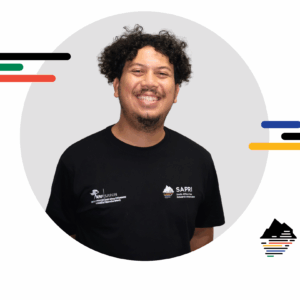
Chandler Patel is a conservation biologist with a focus on biodiversity, herpetology, and climate change.
He holds an Honours degree in Biodiversity and Conservation Biology from the University of the Western Cape, where his research centered on the effects of the 2015–2017 South African drought on the body condition of Psammophis crucifer (crossmarked whip snake) and Psammophylax rhombeatus (skaapsteker), through a six-year mark-recapture
study.
Chandler has gained extensive field experience working with various conservation organizations, including SANParks and Apex Conservation Services. His work has spanned marine, terrestrial, and freshwater ecosystems, where he has contributed to projects such as BRUV (Baited Remote Underwater Video) marine surveys, camera trap biodiversity monitoring, telemetry tracking of wildlife, vegetation monitoring, and invasive plant management. Chandler has developed a strong expertise in both hands-on field research and data-driven conservation analysis.
As a lifelong reptile enthusiast, Chandler is particularly drawn to the warm environments that reptiles thrive in. However, he is now embracing a new challenge in the cold and remote sub-Antarctic conditions as the SAPRI Overwintering Killer Whale / Seal Field Researcher at SAEON’s Egagasini Node. Based on Marion Island, his role involves extensive fieldwork under extreme conditions, monitoring killer whales and seals through behavioral observations, satellite tagging, biopsy sampling, and photographic mark-recapture. Despite the cold, Chandler is excited about this new adventure, knowing that it’s a chance to contribute to important ecological research in one of the world’s most challenging environments.
Andile Kuzwayo
Seabird Field Researcher
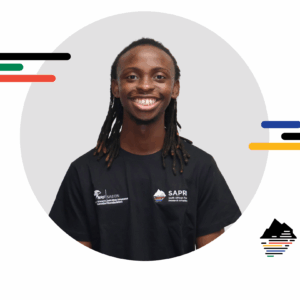
Andile Kuzwayo grew up in the village of Doringkop in KwaDukuza, KwaZulu-Natal, and later moved to Durban to pursue high school and tertiary studies. He completed a BSc in Marine Biology and a BSc Honours in Biological Sciences at the University of KwaZulu-Natal. He is currently completing an MSc in Applied Ocean Sciences at the University of Cape Town.
Andile has actively volunteered with various organisations focused on marine science education and conservation. He has also worked as a tutor and served as a laboratory assistant and demonstrator. Passionate about science communication, he is driven to bridge the gap between scientists and the public, encouraging a shared responsibility for wildlife preservation.
In his spare time, Andile enjoys listening to music, watching movies, series, and anime. His hobbies include archery, ballroom and Latin dancing, sewing, photography, graphic design, and writing poetry.
He applied for the overwintering position motivated by a desire to step outside of his comfort zone and gain a deeper understanding of the natural world. The opportunity to live on a remote island with minimal human impact and to work with new wildlife species (new to him, he said), is particularly exciting. Andile values opportunities that challenge both his mind and body and allow him to be fully present in the moment.
Jana Rau
Seabird Field Researcher
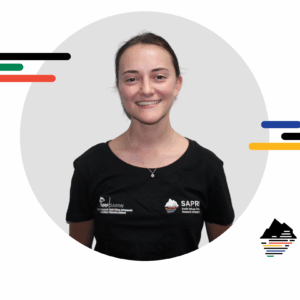 Jana Rau is an ecologist and ornithologist from Sedgefield along the Garden Route in the Western Cape, South Africa. She holds a Bachelor of Science and an Honours degree in Life Sciences from the University of South Africa.
Jana Rau is an ecologist and ornithologist from Sedgefield along the Garden Route in the Western Cape, South Africa. She holds a Bachelor of Science and an Honours degree in Life Sciences from the University of South Africa.
Jana earned a scholarship to complete her Master of Research in Ecology and Environmental Biology at the University of Glasgow, where her research focused on passerine development rates in response to incubation temperatures and laying sequences at the Scottish Centre for Ecology and the Natural Environment (SCENE).
With hands-on field experience in the Scottish woodlands, Jana feels well-prepared for challenging environments like Marion Island. She is especially excited to work with the island’s unique seabird species and has always dreamed of seeing Wandering Albatross and King Penguins in the wild.
Jana has worked with SANCCOB, hand-rearing African Penguin chicks hatched from artificial incubation, and has conducted research on nest-building behavior at the Sociable Weaver Project in the Kalahari. More recently, she collaborated with the Eden to Addo Corridor Initiative to study the impact of ecological corridors on bird conservation.
Beyond her work, Jana enjoys traveling, gardening, kayaking, hiking, birdwatching and spending time on the beach with her dog. One of her favorite quotes is, “We are all visitors to this time, this place. We are just passing through. Our purpose here is to observe, to learn, to grow, to love… and then we return home.”- Australian Aboriginal Proverb
She believes that we are all part of nature – that it provides us with everything we need, and in return, we must respect and protect it.
Camilla Smyth
Seal Field Researcher
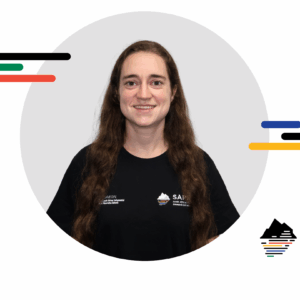
Camilla’s interest in the Antarctic and sub-Antarctic region of the world was sparked when she went to SANAE IV, South Africa’s research base in Antarctica, as a volunteer for the South African National Space Agency (SANSA) for the annual relief voyage in 2019-2020.
Camilla holds a BSc in Applied Biology and Genetics, a BSc (Med) (Hons) in Exercise Science and an LLM in Marine and Environmental Law. With a background in biology, a passion for conservation, a desire for adventure and a love of the outdoors, overwintering on Marion Island as a field assistant became a dream for Camilla.
This dream eventually became a reality when she overwintered on Marion as a field researcher for the Mouse-Free Marion Project from April 2023 – May 2024. The work she performed in this position primarily involved preparation work for the planned eradication of invasive mice from Marion Island, as well as the collection of baseline plant and invertebrate data.
Having not had enough of Marion Island yet, she is returning for another year, this time around as a Seal Field Researcher for SAPRI. This position will involve work with Southern Elephant Seals (Mirounga leonina) and Fur Seals (Arctocephalus tropicalis and Arctocephalus gazella).
She is very much looking forward to the year and to sharing some photos along the way so that everyone can see the beauty of the island.
Kwanele Khuzwayo
Seal Field Researcher
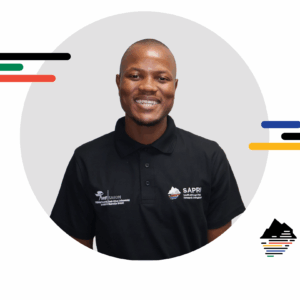
Kwanele Khuzwayo originates from Amahlongwa, a village near Umkomaas, in KwaZulu-Natal. He is a proud Ocean Steward (Cohort 2020) of WILDTRUST‘s Ocean Stewardship programme. He earned his BSc in Zoology and BSc Honours in Zoology from the University of Zululand, gaining valuable research experience in estuarine ecology, ecotoxicology, and ecophysiology.
With a robust background in marine conservation, Kwanele has worked with various organisations, including WILDTRUST, Youth4MPAs, and Ezemvelo KZN-Wildlife. During his tenure at Ezemvelo KZN-Wildlife, he served as a research assistant, supporting the regional ecologist on key projects such as Turtle Monitoring Programme, Rocky Shores Monitoring and Coastal and Estuarine Ecological Assessment.
Kwanele also possesses experience in handling reptiles and amphibians, conducting herpetofauna surveys, writing reports, and has honed skills in data capture, research assistance, and leadership roles, all focused on marine advocacy and conservation.
As a passionate advocate for research and marine conservation, Kwanele is thrilled to join the SAPRI team as a Seal Field Researcher for the 2025/26 season.
Activities During the Marion Island Takeover Expedition
The 2025 Takeover Expedition included our Top Predator Monitoring Coordinator, Yinhla Shihlomule, an experienced seal researcher with extensive field experience, and Eleanor Weideman, a seabird expert currently a PhD candidate and Leiden Conservation Research Associate in the Marine Apex Predator Research Unit at Nelson Mandela University. Both Yinhla and Eleanor have previously overwintered on Marion Island, with Yinhla part of the M71, M74, M77, and M78 teams, and Eleanor also a member of M78. Their combined expertise provided valuable training and support to the incoming SAPRI overwintering team.
Below are some moments captured during the takeover expedition, offering a glimpse into the unique landscapes and the dedicated teams on Marion Island.
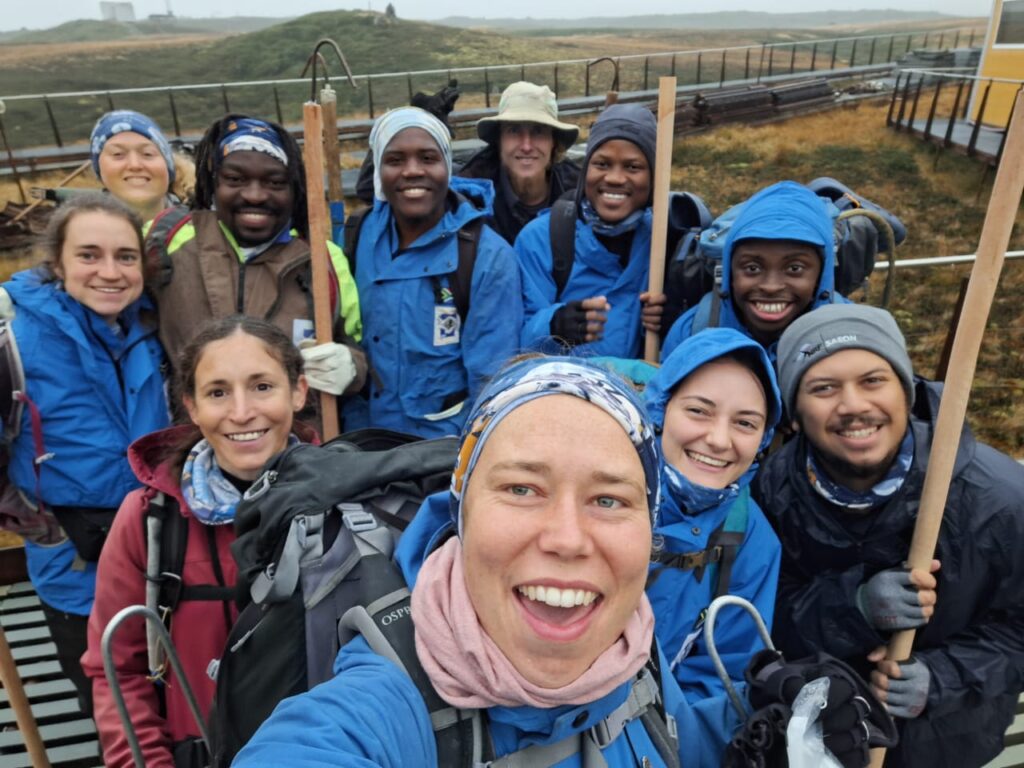
The entire SAPRI takeover and overwintering team during the 2025 Takeover Expedition, including members of the outgoing team – M81 and incoming team – M82 (Photo Eleanor Weideman).
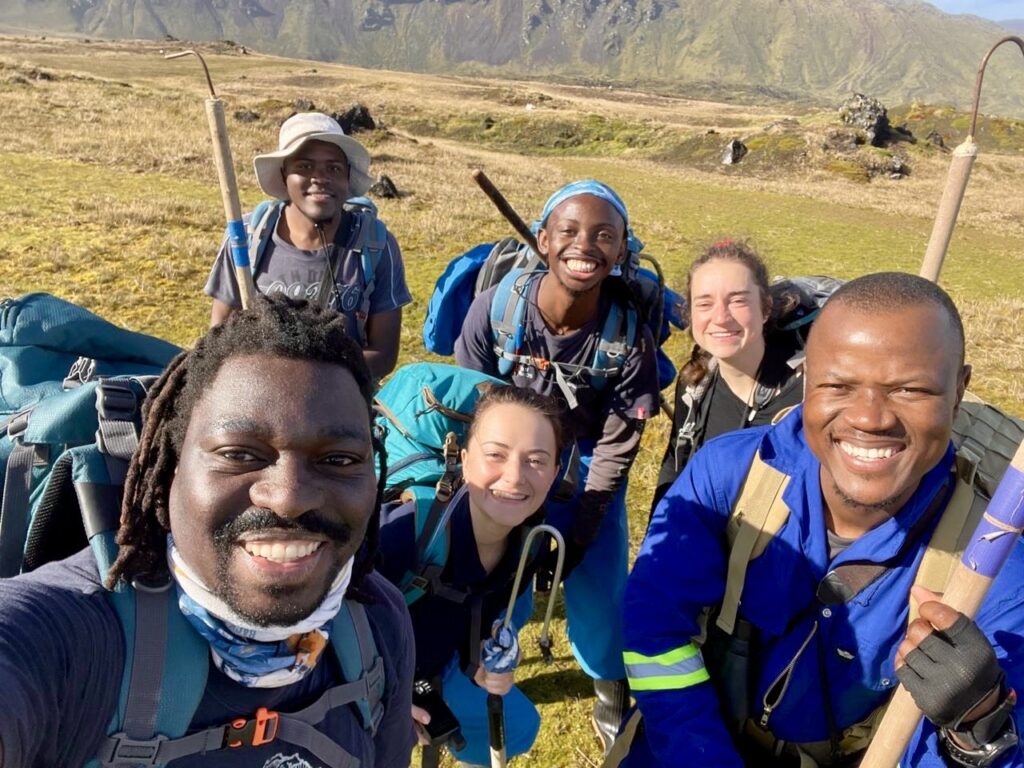
Yinhla (front left) and Dylan (left back – M81 overwinterer) with the M82 Seabird and Seal Field Researchers at Marion Island (Photo: Yinhla Shihlomule)
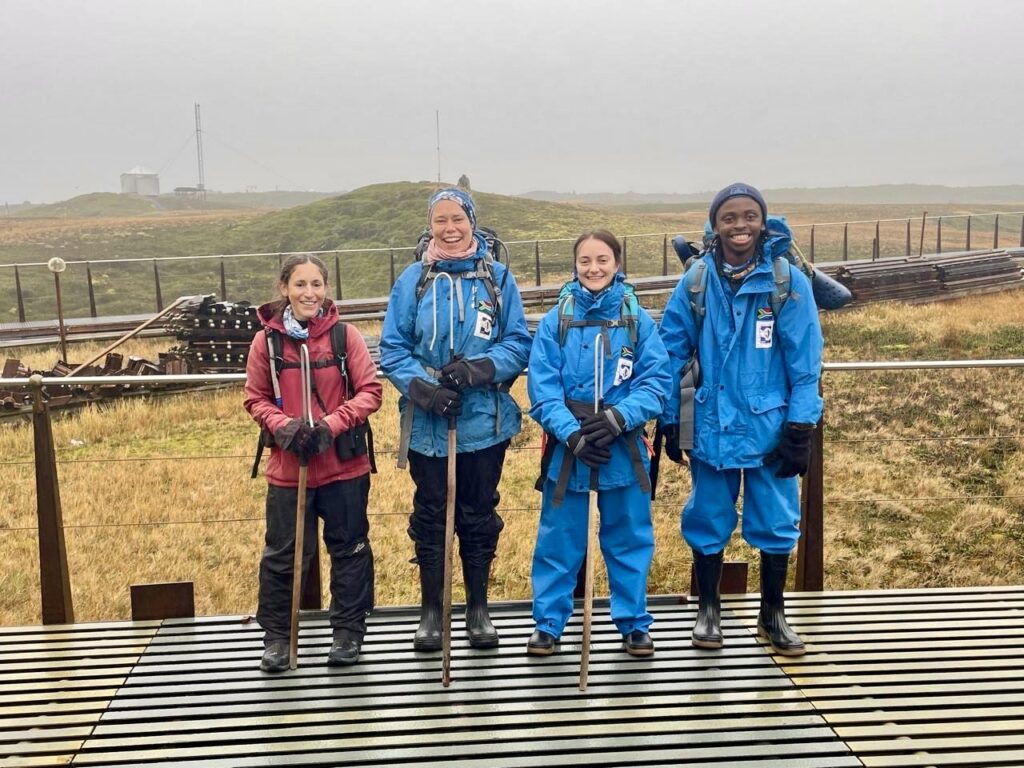
Rhiannon (M81 overwinterer) and Eleanor (2025 takeover personnel) with the M82 Seabird Field Researchers ready to head out to the field during the Takeover Expedition (Photo: Yinhla Shihlomule).
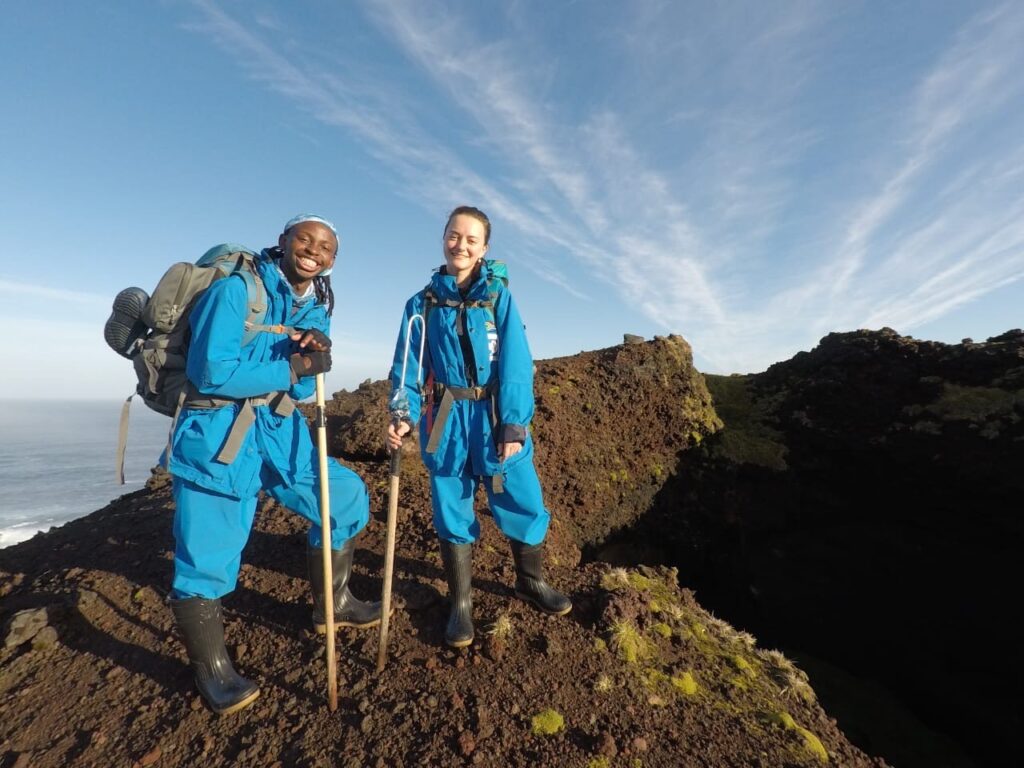
M82 Seabird Field Researchers on top of Kaalkoppie at Marion Island (Photo: Rhiannon Gill).
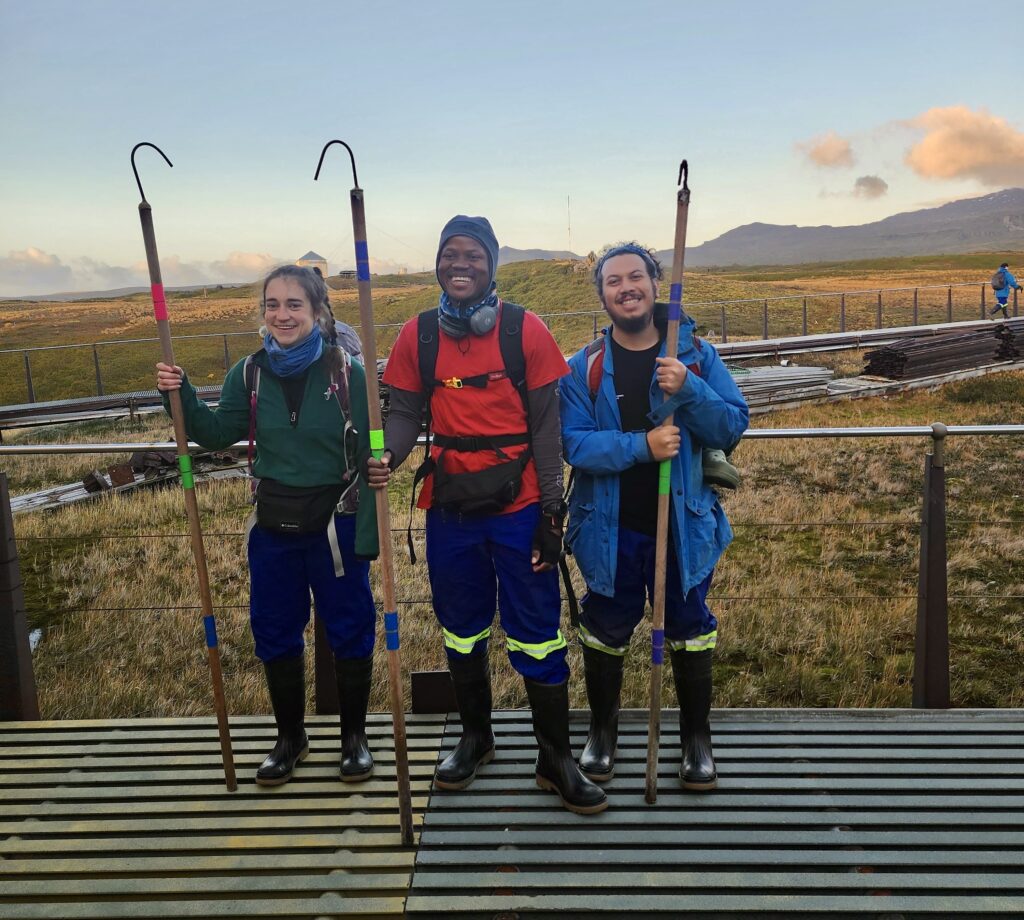
M82 Seal and Killer Whale Field Researchers pictured with their ‘sealer sticks’ outside the bootroom at the Marion Island research station, ready to head out into the field (Photo: Yinhla Shihlomule).
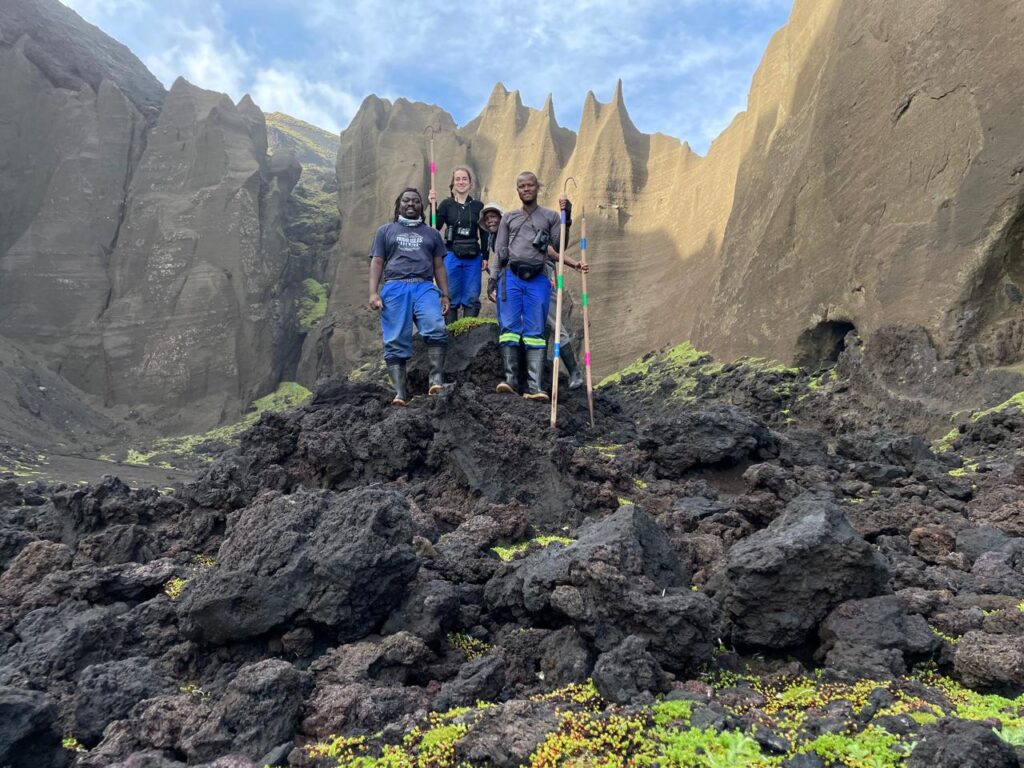
M82 Seal Field Researchers with Yinhla and Dylan at Swartkops on Marion Island (Photo: Yinhla Shihlomule).
Text supplied by the SAPRI M82 Overwinterers. Feature image: Eleanor Weideman
Rabia Mathakutha, South African Polar Research Infrastructure, 30 July 2025
